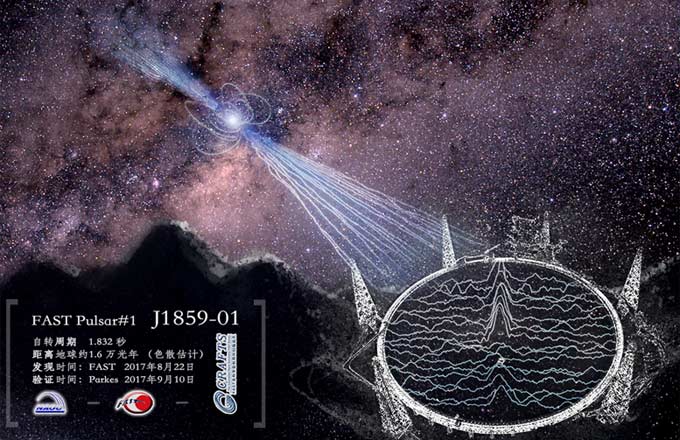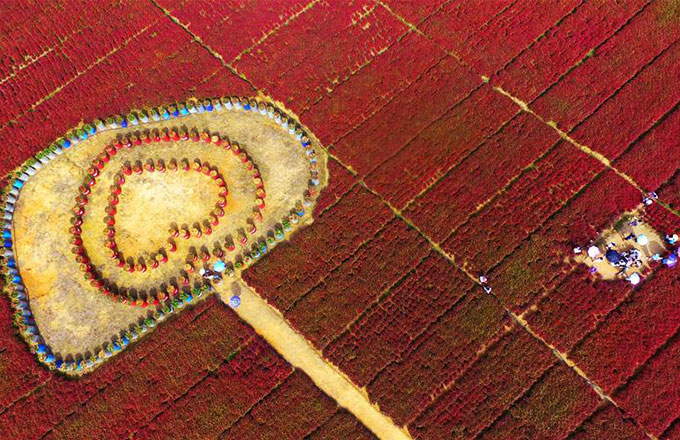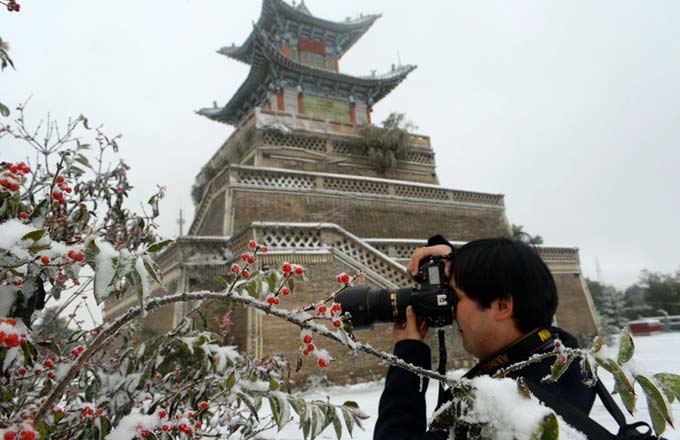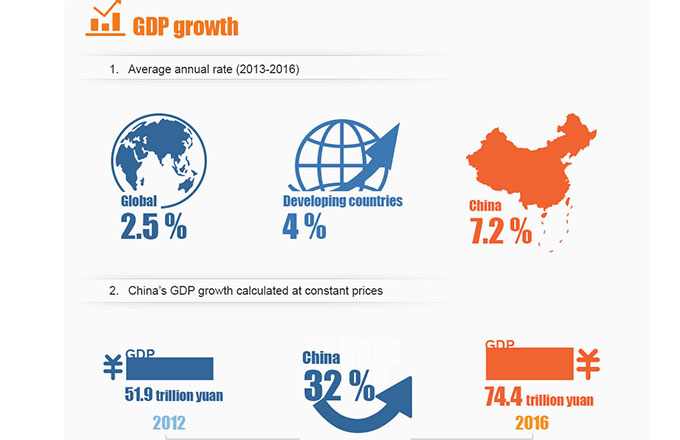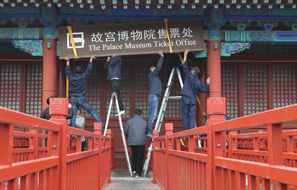Glance of future through Chinese aerospace
In fact, almost all professional fields have been attacked by hackers. There are more than one billion hacked customer accounts so far; which has caused businesses multitrillions of US dollars to get lost.
事实上,没有哪个行业没被黑客攻击过。到目前为止,黑客袭击已涉及数十亿个消费者账户,使企业遭受了数万亿美元的损失。
As the Internet merges into our life, security and privacy has become the biggest concern for all.
随着互联网深入我们生活,隐私安全问题是所有人最担心的问题。
Now that China has launched a mysterious satellite, which is expected to beat all hackers in the war.
现在中国发射了一颗神秘的卫星,它将打赢这场黑客战争。
On August 10, The Financial Times website published an article entitled, "China sends first 'unhackable' message to satellite". And this is the quantum satellite -- Micius or Mozi, which can achieve absolute securing hack-proof communication of phone and bank data transfer.
英国《金融时报》网站8月10日刊登了一篇文章《中国向卫星传送了首个“无法破解”的信息》。这就是量子通信卫星——墨子号。它可以满足绝对安全的电话和银行传输数据的需求。
Named for an ancient Chinese philosopher and scientist called Mozi, the world's first quantum satellite is highly-secured on account of its quantum key. It is impossible to read the communication without a quantum key. Even when someone eavesdrops on the key, the Principles of Quantum Mechanics would make the person realize that he has been tapped. Besides, quantum satellite has another surprising feature, which is its transmission speed billions of times faster than fiber-optic technology.
这个以中国古代哲学家和科学家“墨子”而命名的世界首颗量子卫星,它保密信极高,关键就是量子密钥。在没有密钥的情况下,是无法读到这些通信的。即使有他人窃听了密钥,量子力学原理也会让被窃听的人发现自己已经被窃听。除此之外量子卫星还有一个惊人的地方,量子通信的传输速度比传统光纤技术快亿万万倍。
Such is the breakthrough achieved by Micius that made the cover story of Science magazine in the United States. Meanwhile, its technology can be used in various fields including national defense, military and finance.
这逆天的本领让“墨子号”登上了美国《科学》杂志的封面。并且,它所拥有的技术,在国防、军事、金融等领域都有着广阔的应用前景。
But Micius is not the only benchmark of China's accomplishments in Space. Also in 2016, it launched its sixth manned spacecraft – Shenzhou 11 – which docked with Tiangong 2, the Chinese space station, almost 400 kilometers above the Earth.
然而,“墨子号”并非是中国在航天领域所取得的唯一成就。同样在2016年,中国发射了第六架载人航天飞船——“神州11号”,并与距离地球不到400km的“天宫二号”中国空间站接轨。
China plans to expand Tiangong 2 in the next few years, and with the coming retirement of the International Space Station by 2024, China will be unrivaled in this arena.
中国计划在未来几年里继续发展“天宫二号”,随着2024年其他国家的国际空间站退役,中国将成为唯一 一个在太空中拥有空间站的国家。
Meanwhile, let's not overlook China's airborne achievements closer to the ground! 2017 saw the maiden flight of Caihong 5, or Rainbow 5, China’s heaviest attack and reconnaissance drone to date. The new Unmanned Aerial Vehicle (UAV) has great endurance and can carry out a 40h constant flight, while its improved model could fly for even 120h. With a takeoff weight of about 3 tons, the CH-5 can carry a maximum payload of around 900kg and 16 different types of air-to-ground guided missile, almost twice as much as the US Predator.
除此之外,中国在接近地面的航空领域中也取得了一个突破!2017年“彩虹5号”无人机首飞,它的耐力十足,妥妥地可以连续飞行40小时,改进型的续航能力甚至达到120小时。而且体重3吨的它还是个大力士,挂载重达900公斤、16枚不同类型的空地导弹,几乎是捕食者的2倍。
In the non-military arena, China now supplies 70% of the unmanned-aerial-vehicle market.
在世界非军用无人机的市场中,中国的无人机占据了70%的市场份额。
Whether in the exploration of outer Space, global commercial aerospace cooperation, or in military technology, China has obtained great achievements in its aerospace industry in the past five years.
无论是在外太空探索,全球航天航空商业化合作,还是航天航空的军事能力方面,中国在过去的五年都实现了质的飞越。
In 2016, China had conducted 24 launches, surpassing both the U.S. and Russia for the first time, becoming No.1 in the world.
仅2016年一年,中国单是发射次数就有24次,首次超过美国、俄罗斯,成为了全球第一。
The dramatic development of Aero&Aviation in the past five years can be closely-linked to government priorities and support. Chinese President Xi Jinping himself is a frequent visitor to the launch-site command hall to observe take-offs and chat with astronauts.
中国航天航空这五年的飞速发展和政府的重视息息相关。中国领导人习主席就常常到指挥大厅观看发射任务,并和宇航员进行天地对话。
China has potentials to make great strides in this area!
中国正在积蓄超级力量!




